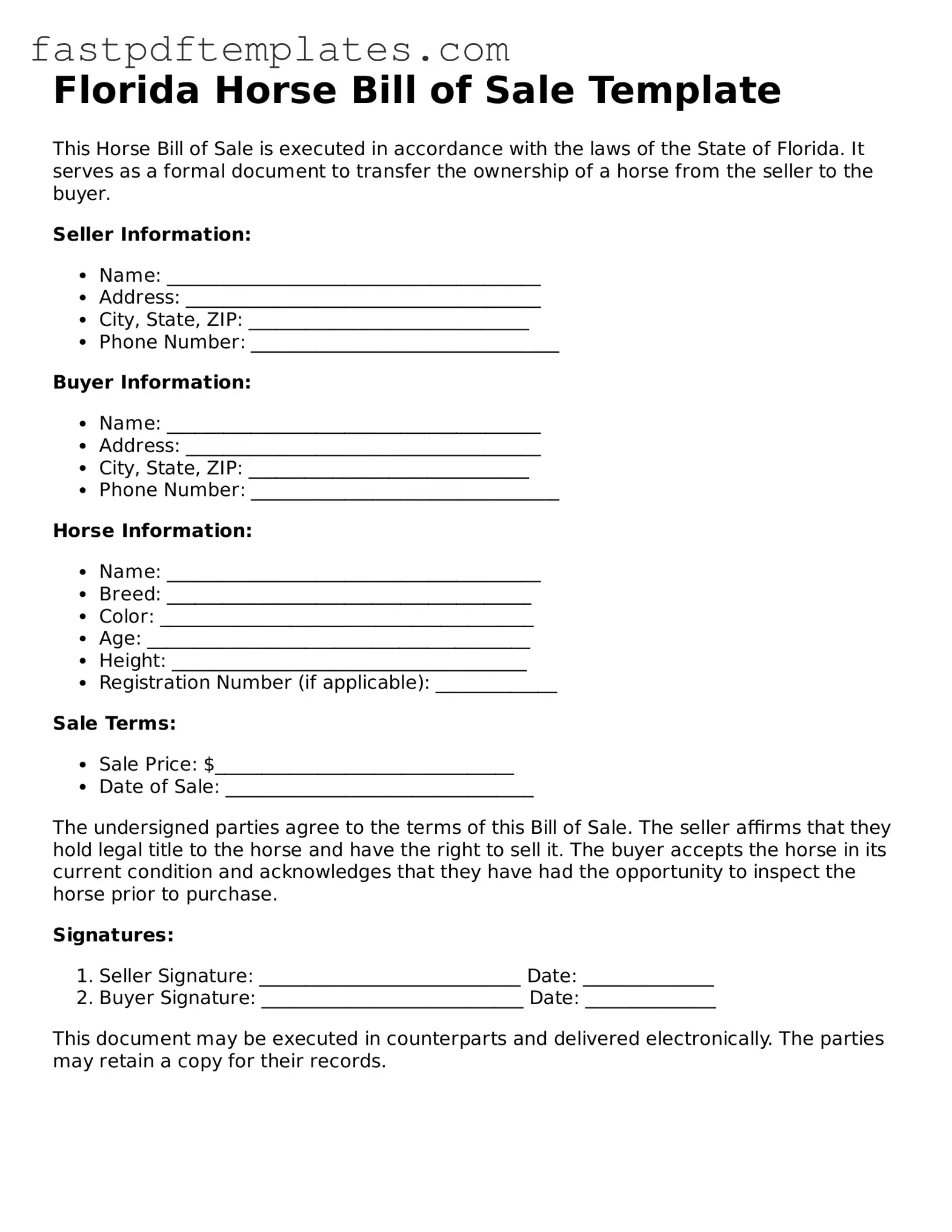The Florida Boat Bill of Sale is similar to the Horse Bill of Sale in that both documents serve as a legal record of the transfer of ownership for a specific asset. Just as the Horse Bill of Sale includes details such as the buyer and seller's information, the purchase price, and a description of the horse, the Boat Bill of Sale outlines similar information regarding the boat being sold. Both documents protect the interests of both parties and provide proof of the transaction for future reference.
The Florida Vehicle Bill of Sale shares similarities with the Horse Bill of Sale in terms of documenting the sale of a personal property. Each form captures essential details such as the vehicle's make, model, and VIN, akin to how the Horse Bill of Sale details the horse's breed and registration information. Both forms are crucial for transferring ownership and may be required for registration purposes with state authorities.
The Florida Motorcycle Bill of Sale is another document that resembles the Horse Bill of Sale. Like the Horse Bill, it details the transaction between the buyer and seller, including the motorcycle's specifications and the agreed-upon price. Both documents serve as proof of ownership transfer and may be necessary for titling and registration with the state.
The Florida ATV Bill of Sale is comparable to the Horse Bill of Sale as it documents the sale of an all-terrain vehicle. Each form includes pertinent information about the seller and buyer, the price, and a detailed description of the vehicle or horse. This documentation is essential for both parties, ensuring that the transaction is legally recognized.
The Florida Trailers Bill of Sale is similar to the Horse Bill of Sale in that it provides a written record of the sale of a trailer. Both forms outline the details of the transaction, including the seller's and buyer's information, and a description of the item being sold. These documents are important for establishing ownership and may be required for registration with local authorities.
The Florida Firearm Bill of Sale bears resemblance to the Horse Bill of Sale, as both serve to document the sale of a personal property item. Each form includes critical information about the buyer and seller, as well as a description of the item being sold. This helps to ensure that both parties have a clear record of the transaction, which can be important for legal purposes.
The Florida Mobile Home Bill of Sale is another document akin to the Horse Bill of Sale. It serves as a formal record of the transfer of ownership of a mobile home, similar to how the Horse Bill documents the sale of a horse. Both forms include vital details about the buyer, seller, and the item being sold, ensuring a clear understanding of the transaction.
Finally, the Florida Livestock Bill of Sale is closely related to the Horse Bill of Sale, as it pertains to the sale of livestock, including horses. Both documents include essential information such as the buyer and seller's details, the purchase price, and a description of the livestock. This ensures that ownership is properly transferred and documented, protecting the rights of both parties involved in the sale.

